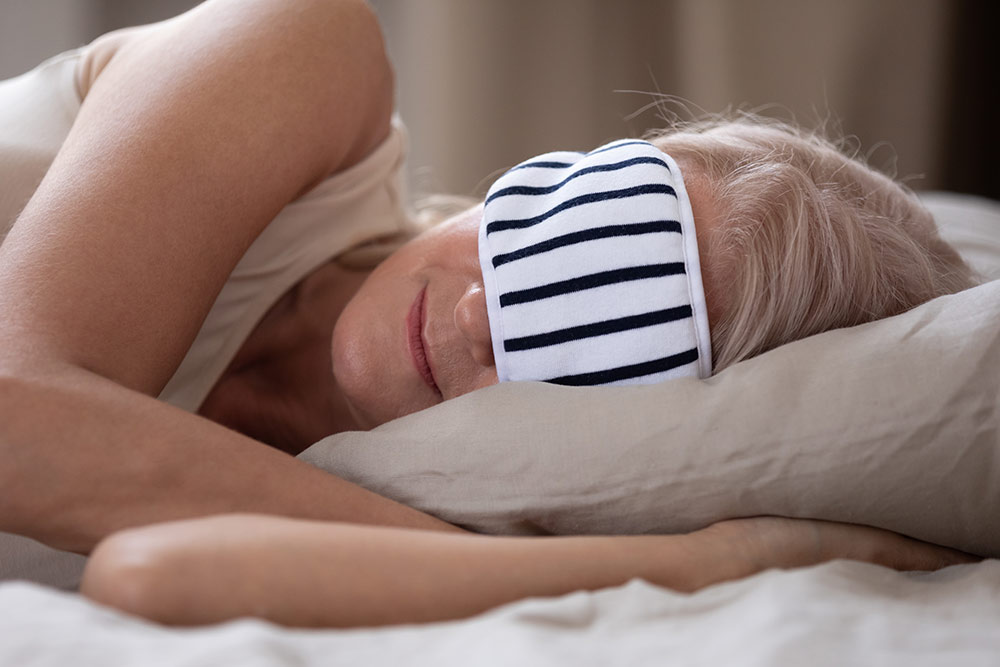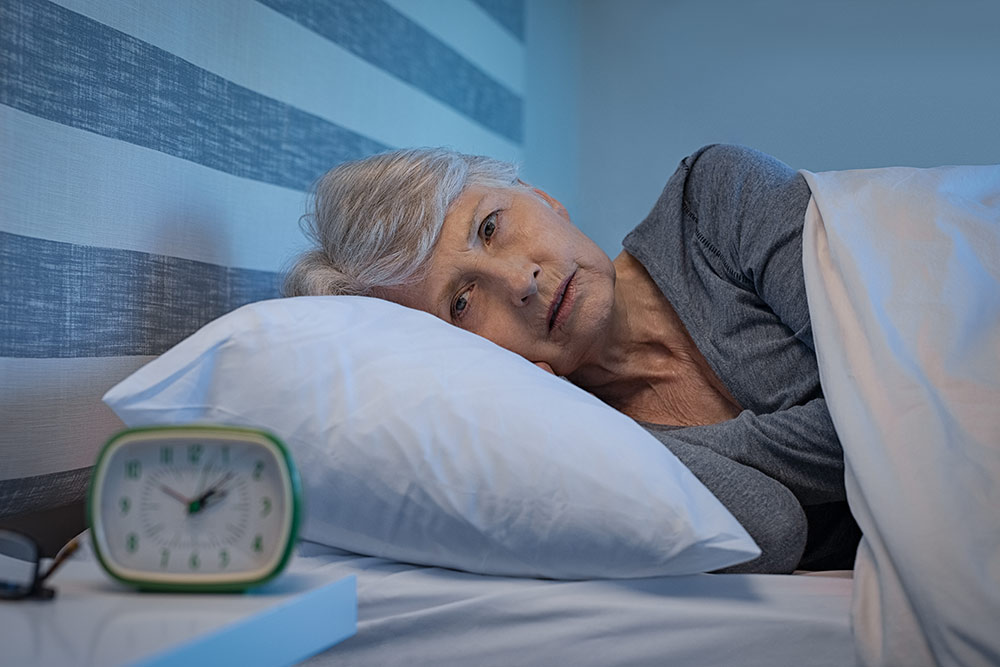As we get older, we more frequently see changes in the way we sleep. We may become sleepy more early in the day, get up earlier in the morning, and get lower quality sleep overall. On the other hand, waking up often and feeling tired after waking up each day are all symptoms of insomnia and aren’t a normal aspect of aging. Sleep is as essential to your emotional and physical wellbeing as it is for younger people.
When you can get a decent night’s sleep, you’ll reap the following benefits:
- recharge your immune system (helping you better prevent diseases)
- allows your body to repair damage to your cells that happened during the daytime
- will improve your ability to concentrate and allow memories to form effectively
But when you aren’t able to sleep properly, you may be a victim of the following problems:
- risk of falling at night
- excessive drowsiness during daytime hours
- issues with focus and memory
- more likely to fall victim to depression
- breast cancer in women
- gaining weight faster
- higher risk of cardiovascular disease
If you want to take control of your sleeping habits and get better sleep at night, then you must know what the root issues of your sleeping problems are. The tips in this blog post can help seniors figure out their unique sleeping problems, sleep better at night, and live a better life during their waking hours.
Understand Senior Sleeping Patterns
When people get older, their bodies produce lower amounts of growth hormones, which means that over time you’ll find it harder to get more deep sleep. Deep sleep is the rejuvenating part of a good night’s sleep. Unfortunately, this decrease occurs because older adults produce less melatonin, which contributes to waking up more often throughout the night. This is one of the main reasons why older adults are often considered to be “light sleepers.”
Other everyday experiences that seniors have is the desire to sleep early in the evening and wake up early the next morning. And furthermore, seniors will have to sleep longer to get the rest they need or make up for their lack of nighttime sleep by taking naps during daytime hours.
Usually, the above sleeping patterns are considered normal for seniors and do not indicate that there are sleeping problems.
Now let’s take a look at some of the sleeping problems that aren’t related to age.
Sleeping Problems at all Ages
Occasional sleep problems do not necessarily mean that you have a sleeping disorder. However, if any of the following sleeping problems happen to you regularly, then you might be experiencing a sleeping disorder.
- You’re unable to control your emotions
- You rely heavily on sleeping pills or other sleeping aids to fall asleep every night
- You find it difficult to concentrate during daytime
- You find it hard to remain awake when driving, watching tv, or even just sitting still
- You feel irritated and sleepy throughout the day
- You don’t feel rejuvenated after waking up in the morning
- You find it difficult to go back to sleep after being reawakened
- You find it hard to fall asleep even though you feel tired
Figure Out the Underlying Causes
The causes of most sleeping problems are treatable. If you can identify any of the following, then a treatment program can be created for you.
- Your health problems might be interfering with your sleep
- Your medications could be interfering with your sleep
- A recent traumatic experience could be affecting your sleeping patterns
- Do you have a history of chronic worry or anxiety?
- How do you feel emotionally? Do you feel flat or without any hope? Do you experience the symptoms of depression?
- How much stress are you dealing with in your life right now?

11 Habits for Quality Sleeping
- Remove bedroom clocks. Watching these clocks will just fuel your insomnia even more. Also, if your clock produces light, then that will make it even harder.
- Make your bedroom just for sleeping. Don’t work or watch TV in your bedroom. Otherwise, your brain will associate this room with those things, making it harder for you to fall asleep at night.
- Keep your room cool, quiet, and suitably dark. If you wake up frequently and need to use the bathroom, a dark room can be impractical. A simple nightlight and a blindfold can be a simple solution to this predicament.
- Avoid reading from bright electronic devices just before bed.
- Increase your levels of melatonin
- Physical intimacy with your partner can also be conducive to better sleep.
- Don’t rely on sleeping pills and sleep aids. Most sleep aids have undesirable side effects and should not be used long term. These solutions don’t address the root causes of insomnia, and they can even make it worse over the long run.
- Create a relaxing bedtime ritual. Good ideas include relaxation techniques, listening to music, and taking a relaxing bath.
- Go to bed when your body feels like going to bed, even if it’s earlier than what you’re used to.
- Snoring can be a significant impediment to a good night’s sleep. If it’s keeping you awake, try earplugs, creating white noise (such as an electric fan), or keep the bedrooms separated.
- Make your sleep schedule consistent. Consistency is crucial to good sleeping habits. You must go to bed and wake up at the same time every day, including weekends.
Conclusion
If you’ve tried all of the above and find that you’re still not able to sleep well at night, then start keeping a record of your attempts to sleep every night and discuss it with your doctor. Things to write down include when you consume nicotine, alcohol, or caffeine. You’ll also want to write down any recent stressors that you’re going through, as well as your medications, changes in lifestyle, and exercise habits. Afterward, your doctor might send you to a sleep specialist for further help, particularly if the insomnia is having a significant effect on your physical and mental health.



